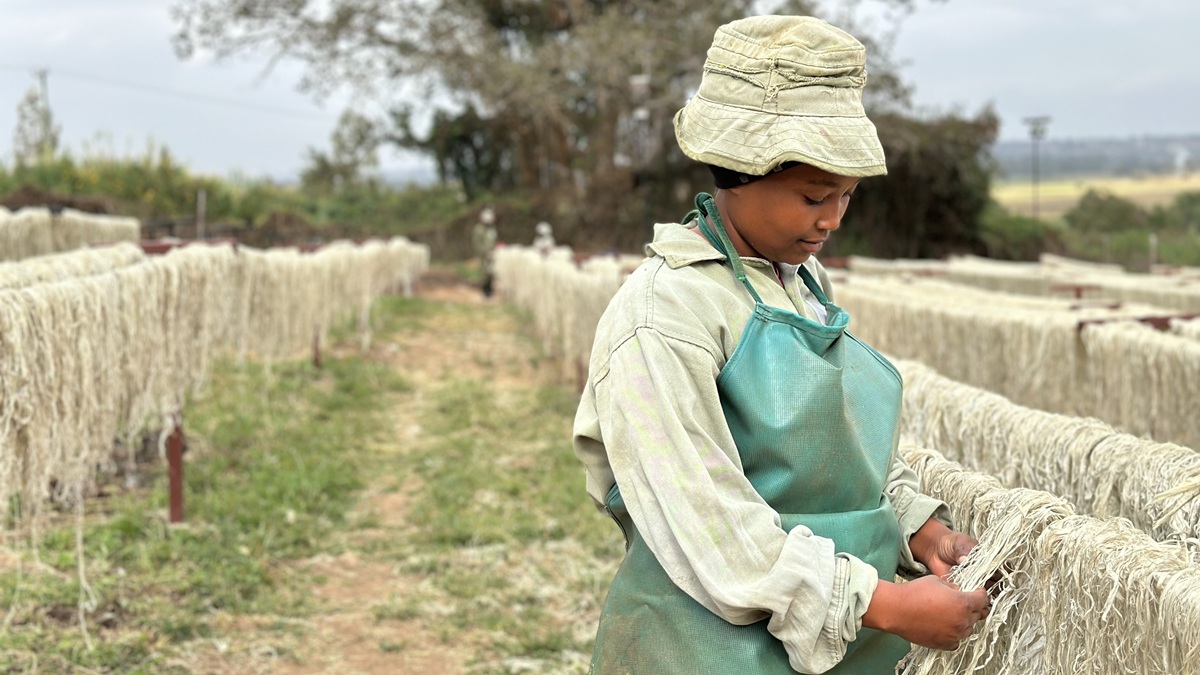By catalysing shifts in trade and consumption, plastics policy helps power innovation and sustainable industrialization on the continent.
As the world continues seeking a treaty to end plastic pollution, Africa is not waiting to adapt but planning ahead.
Beyond short-term bans and clean-ups, the continent is working to revamp laws, markets and supply chains to steer economies towards non-plastic alternatives and substitutes as a new source of industrial growth.
Ghana: Plastic policy for industrial shift
In Ghana, a five-year implementation plan is underway to reduce plastic packaging and make sustainable alternatives more commercially viable.
The blueprint, a first in West Africa, was developed with support from the UK-funded Sustainable Manufacturing and Environmental Pollution (SMEP) Programme of UN Trade and Development (UNCTAD).
It aligns economic incentives, public procurement and key performance indicators with broader industrial strategy, currently being piloted to target the country’s most waste-heavy sectors such as plastic mulch film, sachet water packaging and carrier bags.
“This is a development strategy, not a waste strategy,” Ebenezer Laryea, a project director for SMEP on the ground, told UNCTAD ahead of this year’s Africa Industrialization Week running through 21 November.
“We’re using plastics policy to drive broader industrial shift, rethinking how we trade and consume so that sustainability and the bioeconomy shape our path to economic growth.”
The blueprint links to forthcoming Extended Producer Responsibility (EPR) rules, as the country aims for a competitive foothold in the fast-emerging global circular bioeconomy.
“Ghana’s transition provides an opportunity for both enhanced environmental protection and economic advancement, positioning the country as a hub for trade in plastic alternatives and natural substitutes,” said Director Larry Kottoe of Ghana’s Environmental Protection Authority.
East Africa: Plastic policy for green industrialization
Supported by UNCTAD’s SMEP programme, countries in East Africa also accelerate progress towards a circular and regenerative economy.
The East African Community is considering a draft bill on a regionally binding roadmap to phase out harmful single-use plastics.
The work seeks to close cross-border loopholes that often hamper national action on single-use plastics, harmonising regulations across Burundi, the Democratic Republic of the Congo, Kenya, Rwanda, Somalia, South Sudan, Uganda and the United Republic of Tanzania.
Beyond banning plastics, the draft bill mandates EPR rules, incentivizes sustainable materials and protects informal workers to formalize the waste economy.
“Plastic controls must be paired with business-enabling measures, supportive policy frameworks, sustainable finance and skills development,” concluded Abraham Korir Sing’Oei, a principal secretary at Kenya’s Ministry of Foreign and Diaspora Affairs.
